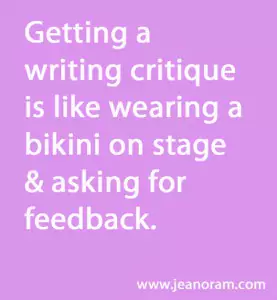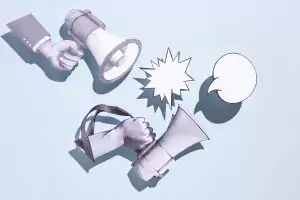
✅ AI Essay Writer ✅ AI Detector ✅ Plagchecker ✅ Paraphraser
✅ Summarizer ✅ Citation Generator
 Here is a tricky question for you: what is worse in terms of being treated by a reading audience: indifference, or criticism? To me, the answer is definitely indifference (although it can be difficult to distinguish it from a lack of recognition). If you have ever faced a situation when something you put your soul into was treated like, “Meh, whatever,” then you will probably agree how any opinion, even the most negative one, is way better than this.
Here is a tricky question for you: what is worse in terms of being treated by a reading audience: indifference, or criticism? To me, the answer is definitely indifference (although it can be difficult to distinguish it from a lack of recognition). If you have ever faced a situation when something you put your soul into was treated like, “Meh, whatever,” then you will probably agree how any opinion, even the most negative one, is way better than this.
I started this topic because a couple of days ago, one friend of mine got upset because one of his poems were been criticized harshly. I told him to cheer up instead, since when you get criticized, it means someone has read your work and made up his or her own opinion about it. Of course, there can also be unjustified criticism, bias, or hatred, but unless you become a famous writer, most likely you won’t face these maladies. So, if you feel criticism upsets you, the following points might help you deal with it a bit better.
1. Decide for yourself what is justified criticism, and what is trolling or hostility. Rather often, we tend to anticipate rational motives behind the behaviors of other people, so when we face harsh criticism, we believe it might be based on something reasonable, and get upset about it. However, rather often people say mean things just to say them! Whenever you feel offended by someone’s pointless criticism towards your novel or poem, remember such people usually never write anything of their own.
2. It is important, however, to be able to understand when criticism is pointless, and when it is reasonable, but emotional. Sometimes, people express their thoughts in a rude and offensive way (for many reasons), but there is still a rationale behind their rudeness. In this case, try to extract yourself from emotions such people may evoke in you, and “filter out” everything useful from this negative criticism. Like if someone writes, “What kind of idiot writes haiku like this? Classical haiku should have 5-7-5 syllables, you fool!” you can omit all the insults and mean names, as nowadays haiku is usually not written in this way.
3. I know people who get upset and even offended by the very fact of being criticized. Such people usually behave like everyone should appreciate their novels/poems/academic papers just because they have been written. If you are one of them, you should, firstly, keep it in secret, and secondly, remember criticism can contribute to your development as a writer. Of course, it is pleasant to read nice comments and admiring reviews, but if someone does not like what you do, and has arguments to prove his/her point of view, you should listen to it and be grateful.
4. And in any case, do not act defensively. Do not start to explain why you wrote your piece this or that way, what you meant, why something went wrong, and so on. Ignore hostile pointless criticism, and thank those who criticize you rationally. This is way more professional than replying to mean comments, counter-attacking, explaining yourself, and so on.
These rules are simple, but applying them in practice may be difficult. We all tend to get emotional, and a desire to “defend” your creativity can be overwhelming. Remember: even when other people don’t like what you do, it does not mean you do it wrong, or it is worthless. Filter out the usefulness and throw negativity away, and you’ll be able to deal with any criticism.
Good luck!
Follow us on Reddit for more insights and updates.




Comments (0)
Welcome to A*Help comments!
We’re all about debate and discussion at A*Help.
We value the diverse opinions of users, so you may find points of view that you don’t agree with. And that’s cool. However, there are certain things we’re not OK with: attempts to manipulate our data in any way, for example, or the posting of discriminative, offensive, hateful, or disparaging material.